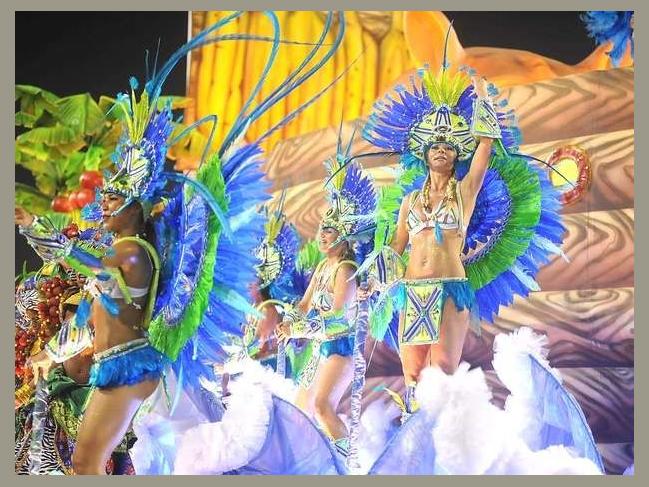 Acadêmicos da Rocinha
Acadêmicos da Rocinha
Acadêmicos da Rocinha: Samba Enredo 1992 - Pra Não Dizer Que Não Falei Das Flores
Origins and Formation:
Acadêmicos da Rocinha, a prominent samba school from Rio de Janeiro, Brazil, traces its roots back to the 1960s. Founded in the eponymous favela, the school quickly rose to prominence with its vibrant and innovative performances.
Samba Enredo 1992: A Masterpiece
In 1992, Acadêmicos da Rocinha unveiled its iconic samba enredo, "Pra Não Dizer Que Não Falei Das Flores." This masterpiece, composed by Arlindo Cruz, Jorginho do Império, and Almir Guineto, was a poignant tribute to the poet Carlos Drummond de Andrade. Its lyrics captured the essence of Andrade's work, exploring themes of love, loss, and the beauty of nature.
Challenges and Controversies:
Acadêmicos da Rocinha has faced both challenges and controversies throughout its history. In 1976, the school's headquarters were destroyed in a fire, leading to a temporary displacement. Additionally, the group has been criticized for its alleged involvement in drug trafficking and other illegal activities.
Discography:
Over the years, Acadêmicos da Rocinha has released numerous albums and singles, showcasing their unique blend of samba, funk, and Afro-Brazilian rhythms. Some of their most notable recordings include:
* "Deixa a Vida Me Levar" (1992)
* "Pé na Estrada" (1995)
* "A Gente Faz a Festa" (1998)
* "Castelo das Águas" (2003)
* "Em Busca do Sucesso" (2015)
Members:
The current lineup of Acadêmicos da Rocinha includes:
* President: Edson Pereira
* Artistic Director: Alex de Souza
* Musical Director: Maestro Jaquinho
* Mestre-Sala: Rogério Dornellas
* Porta-Bandeira: Lucinha Nobre
* Intérprete: Igor Sorriso
Legacy and Impact:
Acadêmicos da Rocinha remains a revered institution in the samba community. Their music and performances have captivated audiences worldwide, showcasing the vibrant and diverse culture of Rio de Janeiro. The school's samba enredo "Pra Não Dizer Que Não Falei Das Flores" continues to be celebrated as a timeless masterpiece, inspiring generations of samba enthusiasts.
Origins and Formation:
Acadêmicos da Rocinha, a prominent samba school from Rio de Janeiro, Brazil, traces its roots back to the 1960s. Founded in the eponymous favela, the school quickly rose to prominence with its vibrant and innovative performances.
Samba Enredo 1992: A Masterpiece
In 1992, Acadêmicos da Rocinha unveiled its iconic samba enredo, "Pra Não Dizer Que Não Falei Das Flores." This masterpiece, composed by Arlindo Cruz, Jorginho do Império, and Almir Guineto, was a poignant tribute to the poet Carlos Drummond de Andrade. Its lyrics captured the essence of Andrade's work, exploring themes of love, loss, and the beauty of nature.
Challenges and Controversies:
Acadêmicos da Rocinha has faced both challenges and controversies throughout its history. In 1976, the school's headquarters were destroyed in a fire, leading to a temporary displacement. Additionally, the group has been criticized for its alleged involvement in drug trafficking and other illegal activities.
Discography:
Over the years, Acadêmicos da Rocinha has released numerous albums and singles, showcasing their unique blend of samba, funk, and Afro-Brazilian rhythms. Some of their most notable recordings include:
* "Deixa a Vida Me Levar" (1992)
* "Pé na Estrada" (1995)
* "A Gente Faz a Festa" (1998)
* "Castelo das Águas" (2003)
* "Em Busca do Sucesso" (2015)
Members:
The current lineup of Acadêmicos da Rocinha includes:
* President: Edson Pereira
* Artistic Director: Alex de Souza
* Musical Director: Maestro Jaquinho
* Mestre-Sala: Rogério Dornellas
* Porta-Bandeira: Lucinha Nobre
* Intérprete: Igor Sorriso
Legacy and Impact:
Acadêmicos da Rocinha remains a revered institution in the samba community. Their music and performances have captivated audiences worldwide, showcasing the vibrant and diverse culture of Rio de Janeiro. The school's samba enredo "Pra Não Dizer Que Não Falei Das Flores" continues to be celebrated as a timeless masterpiece, inspiring generations of samba enthusiasts.